

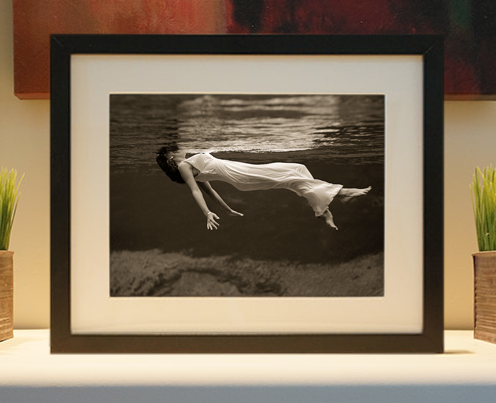
Framed or unframed, desk size to sofa size, printed by us in Arizona and Alabama since 2007. Explore now.
Shorpy is funded by you. Patreon contributors get an ad-free experience.
Learn more.

- Baldwin 62303
- Baldwin VO-1000
- Cold
- No expense spared
- Tough Guys
- Lost in Toyland
- And without gloves
- If I were a blindfolded time traveler
- Smoke Consumer Also Cooks
- Oh that stove!
- Possibly still there?
- What?!?
- $100 Reward
- Freeze Frame
- Texas Flyer wanted
- Just a Year Too Soon
- WWII -- Replacing men with women at the railroad crossing.
- Yes, Icing
- You kids drive me nuts!
- NOT An Easy Job
- I wonder
- Just add window boxes
- Icing Platform?
- Indiana Harbor Belt abides
- Freezing haze
- Corrections (for those who care)
- C&NW at Nelson
- Fallen Flags
- A dangerous job made worse
- Water Stop
Print Emporium
Cal and Car: 1924
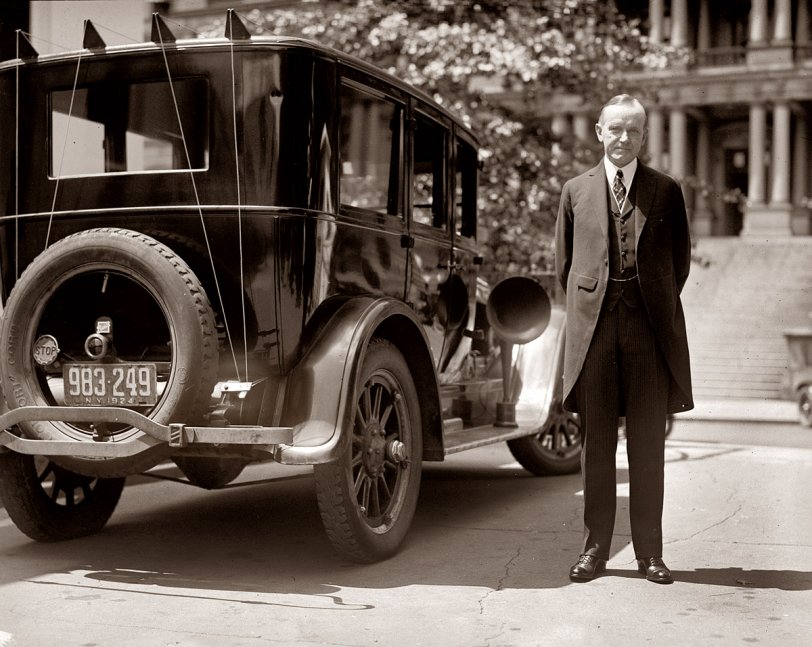
August 14, 1924. President Calvin Coolidge and his radio-equipped Buick automobile in Washington. View full size. National Photo Company Collection.
Cal's Car
Keep in mind that in the 20's the main band for radio was AM (Amplitude-Modulated), which runs from 560KHz to 1.6MHz nowadays (the upper and lower limits may have been different back then). This is about 1/100 the frequency of FM, which most people listen to today. Consequently the radio wavelength is about 100 times longer than your typical FM radio wavelength, and so to receive it with reasonable efficiency you need a very long antenna.
FM radio at 100MHz has a wavelength of about 10 feet; a quarter-wavelength antenna therefore is about 2.5 feet or 30 inches. For 1MHz radio in Calvin's time, the quarter-wavelength antenna would be 250 feet long!
Obviously this is impractical for a car but they've made it as long as they can by folding one continuous wire multiple times across the back and over the roof of the car. You can be assured this is one long wire, and no, it's not "grounded" on the bumper.
Not an Aerial
The wires appear to be electrically and mechanically coupled at the bumper which means they're grounded which means this doesn't work as an a aerial. The wires also pass over some standoffs on the roof, likely made of metal which again effectively grounds the wires which again means it doesn't work as an aerial. Even if the whole thing was insulated from the body in some manner that we don't see, its way too close to the body of the vehicle to be effective as an aerial.
Having a speaker out on the running board serves absolutely no purpose for a broadcast receiver or a two- way radio. Its more likely that the vehicle had a PA system installed and so that President Coolidge could remind pedestrians to vote Republican.
[The radio was installed by RCA so the president could listen to political news while traveling; he also had a set on his train. The wires on the back are indeed the antenna. As for the notion of Silent Cal "reminding pedestrians to vote Republican" over a loudspeaker from his car -- that certainly would have been something to see. - Dave]
Not soon enough
Not soon enough. Waistcoats are great.
Waistcoat
When are these coming back into style?
Aerial
Radio antennas in those days were called "aerials". Household radio aerials were quite long and ran from one side of the roof to the other. I would guess that what we see here is an aerial folded back and forth across the top and rear of the car to get full length.
Coolidge Buick
What I find interesting here is the N.Y. license plate. Silent Cal was born and reared in Vermont and held a long string of political offices in Massachusetts, including Governor. He was elected Harding's VP in 1920 while still gov, in fact. So: what's with the N.Y. plate? Are we sure this was Cal's personal vehicle? Would N.Y. plates be appropriate for an official Presidential vehicle?
["Personal vehicle"? Another photo of Cal and the car has the caption "Radio equipment used on automobile during the campaign." - Dave]
Cool Speakers
Those are pretty cool speakers. I bet he had some deep bass thumping going on cruising around D.C.
This could be the first pimped-out Buick!
I like the little placard letting other cars know what the tail light means.
Car Radio
The wires going over the top of the car are the antenna. The horn speaker sitting on the running board looks to be a Western Electric 10D. The radio itself is not shown but would have probably been a five tube set common at that time. Not a very practical setup but radio was a big craze in 1924.
The Dent
I'm curious to know if that indentation in the right rear upper corner of the car is intentional, or if some disgruntled citizen took a hammer and vented his/her frustration.





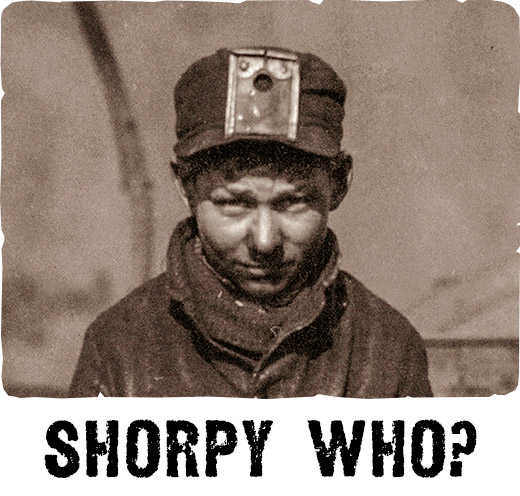
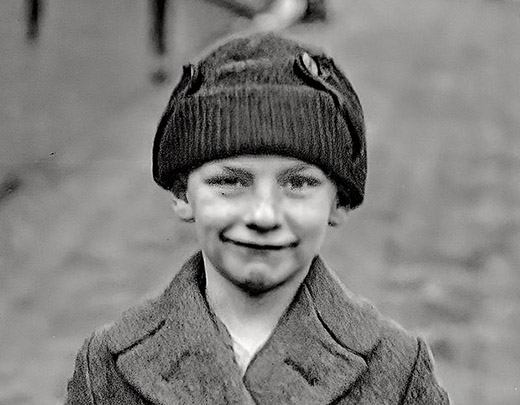
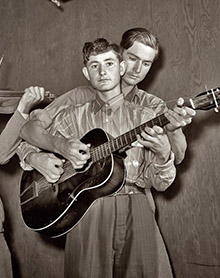
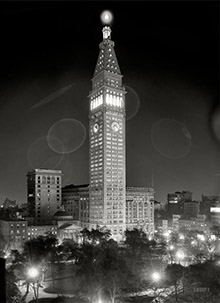
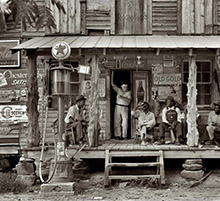
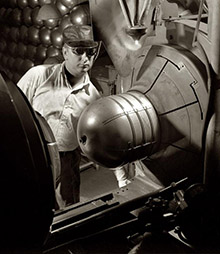
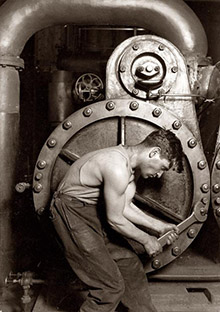
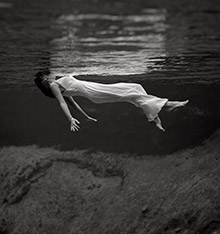
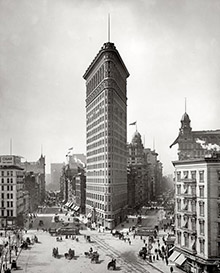



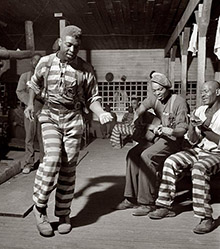
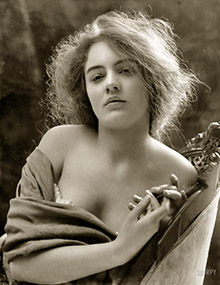
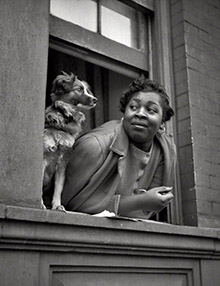

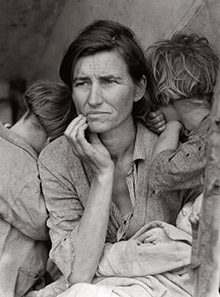

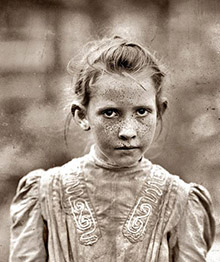
On Shorpy:
Today’s Top 5